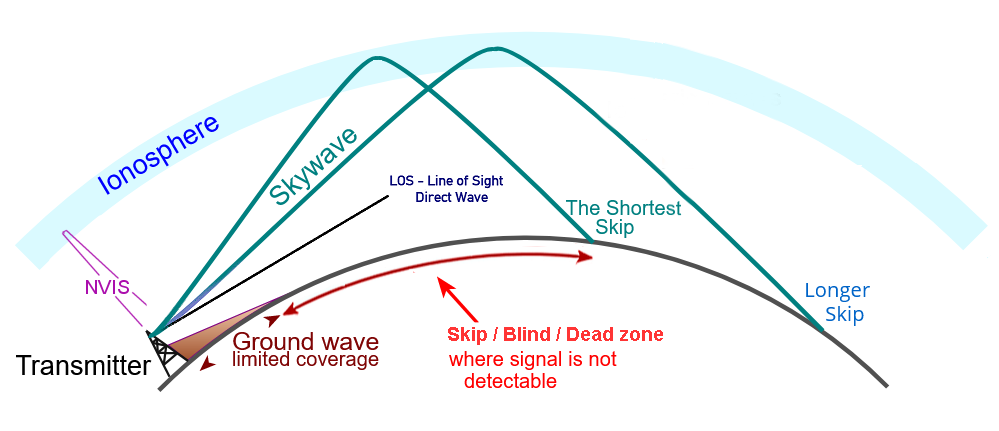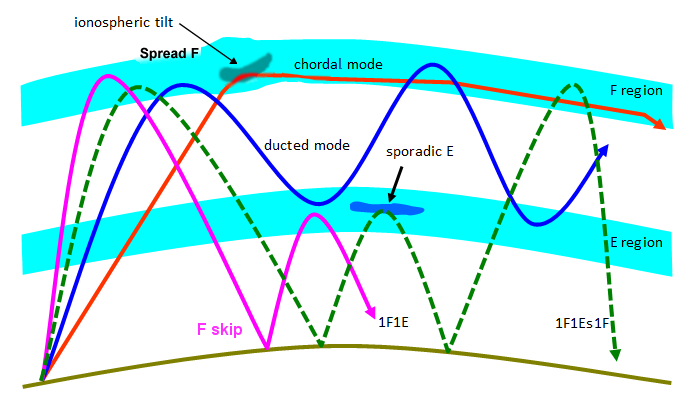 What are the modes of Radio Propagation?
What are the modes of Radio Propagation?
The main modes of radio propagation:
- Line Of Sight propagation: Line of sight refers to the propagation of HF radio waves in a straight line without being reflected by the ground or other objects. Such signals can travel for relatively short distances, depending on terrain and atmospheric conditions.
- Ground wave propagation: The radio signal travels over the Earth's surface and is absorbed and reflected by the ground in this mode of propagation. Ground wave propagation is most effective at lower frequencies (below 2 MHz) and can be used for short-range communication, typically up to a few hundred kilometers.
- Skywave propagation: Skywave propagation involves radio signals refracted by the ionosphere returning to Earth for long-distance communication, particularly effective at the HF range (3–30 MHz).
Skywave propagation conditions depend on several factors, including the frequency of the radio signal, the distance between the transmitting and receiving stations, the time of day, and the environmental conditions. Understanding the most effective mode of propagation for a given situation is important for optimizing HF radio communication and ensuring reliable transmission.
Additional modes of skywave propagation:- "Reflections" that occur due to multi-refractions.
- Ionospheric Scatter: Occurs when the radio signal is affected by plasma irregularities in the E and F regions. This phenomenon is known at frequencies ranging from 20 to 50 MHz.
- Tropospheric scatter: The Troposphere (the lowest portion of the Earth's atmosphere) may scatter radio signals at frequencies ranging from 100 MHz to 2 GHz.
The figure is a diagram showing different modes of radio wave propagation in the ionosphere, including ionospheric tilt, chordal mode, ducted mode, sporadic E, F skip, 1F1E, and 1F1Es1F. It highlights how radio waves interact with the E and F regions, illustrating their travel paths over long distances.
See HF Complex Propagation modes, and an index of terms for HF Radio propagation.

